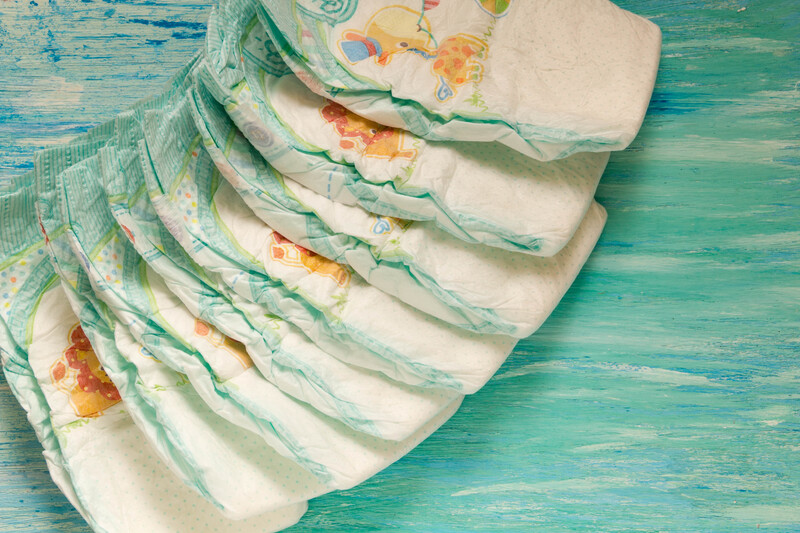Household Habits That Prevent Unnecessary Waste: A Comprehensive Guide
In our modern world, minimizing unnecessary waste at home has become increasingly important for the health of our planet and future generations. Many people wonder, "What can I do within my household to reduce waste?" Developing eco-friendly household habits plays a vital role in achieving a sustainable lifestyle. In this article, we will comprehensively explore practical techniques and mindful routines that help prevent superfluous waste, optimize resources, and contribute positively to environmental conservation.

Why Focus on Reducing Household Waste?
Every day, tons of waste are produced in homes around the globe, much of it ending up in overflowing landfills or polluting oceans. Adopting waste-preventing household habits not only helps the environment but also saves you money, makes your home more organized, and encourages a mindful way of living. The small changes made by individuals, when multiplied across communities, create a substantial impact.
Key Benefits of Waste Prevention at Home
- Environmental Preservation: Reducing waste means fewer resources are extracted and less pollution is generated.
- Cost Savings: Using less and reusing more cuts down expenses.
- Efficient Living: A clutter-free, waste-minimized home is easier to clean and manage.
- Healthier Lifestyle: Waste prevention often accompanies healthier eating and living habits.
- Setting a Positive Example: Your eco-conscious practices can influence friends, family, and neighbors.
1. Adopt the "Reduce, Reuse, Recycle" Approach
The classic mantra to prevent unnecessary household waste is to reduce, reuse, and recycle. Every action within your home should be planned around these three principles.
Reduce
- Buy only what you need - avoid impulsive purchases and bulk buying items with a short shelf-life.
- Choose products with minimal or no packaging.
- Plan meals and shopping lists in advance to limit food waste.
- Switch to digital receipts and documents to save paper.
Reuse
- Use reusable shopping bags, water bottles, and food containers.
- Repurpose jars, bottles, and boxes for storage or DIY projects.
- Donate or upcycle old clothing, toys, and electronics.
Recycle
- Sort household waste into appropriate recycling bins.
- Stay informed about local recycling guidelines (some areas accept glass, others do not).
- Compost food scraps and yard waste instead of sending them to the landfill.
2. Preventing Food Waste in Your Home
Food waste is a pervasive problem in many households. By developing conscious habits, families can prevent unnecessary spoilage and save money.
Practical Tips to Minimize Food Waste
- Plan Weekly Meals: Write a shopping list based on actual needs and planned recipes.
- Store Food Properly: Use airtight containers and understand fridge sections for different foods.
- First In, First Out (FIFO): Place older items at the front of shelves and newer items behind.
- Use Leftovers Creatively: Turn last night's dinner into a new meal or lunch.
- Compost Scraps: Convert peels and trimmings into nutrient-rich compost for your garden.
- Understand Expiry Dates: "Best before" isn't the same as "use by" - rely on your senses before discarding food.
Mindful Purchasing Habits
- Shop more frequently, buying only what is needed for the next few days.
- Choose loose fruit and vegetables to avoid excessive packaging.
- Support local farmers' markets to reduce transportation and preservation waste.
3. Sustainable Shopping and Product Choices
Every purchase is a vote for more sustainable household habits. Being attentive to what you buy and how it's packaged can significantly minimize waste at home.
Shopping with Less Waste in Mind
- Choose Eco-Friendly Brands: Buy from companies that use recycled materials and ethical practices.
- Prioritize Bulk Purchasing: Purchase dry goods and detergents in bulk using refillable containers.
- Sustainable Packaging: Opt for items packaged in glass, metal, or paper instead of single-use plastic.
- Avoid Single-Use Products: Say no to disposable plates, cutlery, wipes, and razors.
- Use Natural Cleaners: Reduce chemical waste by using vinegar, baking soda, and lemon for cleaning.
4. Establishing a Zero-Waste Routine in Daily Life
Making zero-waste routines a part of your daily life is key to stopping unnecessary waste in households. Small actions, repeated consistently, become second nature and lead to long-lasting impact.
Creating Waste-Preventing Habits
- Always Carry Reusables: Have a reusable bag, bottle, and coffee cup when on the go.
- Say No to Junk Mail: Remove your address from mailing lists to cut down paper waste.
- Buy Secondhand: Give furniture, clothes, and electronics a second life by shopping at thrift stores.
- Repair Instead of Replace: Try fixing items before tossing and buying new ones.
- Get Creative: Use old clothes as cleaning rags, or make crafts from recyclable materials.
Family Involvement
- Teach children about recycling and reuse with games and hands-on activities.
- Encourage everyone to adopt their own small eco-friendly habits, such as turning off lights or using less water.
- Set home challenges, like a "no waste week", to encourage friendly competition and build long-term awareness.
5. Water and Energy Conservation
Preventing excess household waste isn't just about tangible goods - it's also about using less water and energy. Smart water and energy habits help conserve resources and reduce your home's environmental impact.
Water-Saving Habits
- Take shorter showers and turn off the tap while brushing teeth.
- Only run the dishwasher or washing machine with full loads.
- Fix leaks immediately to prevent water waste.
- Collect rainwater for watering plants or cleaning.
- Install low-flow faucet aerators and dual-flush toilets.
Reducing Energy Waste
- Switch to LED bulbs and energy-efficient appliances.
- Unplug devices when not in use to avoid phantom energy drain.
- Air-dry laundry when possible instead of using the dryer.
- Layer clothing to adjust temperature indoors before turning up heating or air conditioning.
- Use programmable thermostats to optimize heating/cooling times.
6. Rethink Cleaning and Personal Care
Many disposable items in the average home are found in cleaning and personal care routines. Shifting to more sustainable options is a powerful way to prevent waste in daily household life.
Eco-Friendly Cleaning Routines
- Use washable cloths or sponges instead of paper towels.
- Buy cleaning agents in concentrate form to dilute at home.
- Swap out disposable mop heads for reusable microfiber pads.
- Choose refillable soap dispensers and cleaning sprays.
Waste-Free Personal Care Habits
- Switch to bar soap, shampoo bars, and toothpaste tablets to reduce plastic bottles and tubes.
- Replace single-use razors with safety razors with replaceable blades.
- Choose reusable cloth pads, menstrual cups, or period underwear.
- Buy cotton swabs and toothbrushes made of bamboo or other compostable materials.
- Make your own personal care products from simple, natural ingredients.
7. Responsible Disposal and Upcycling
Not everything can be reused or recycled, but adopting responsible disposal habits ensures that whatever leaves your home is managed sustainably.
Disposing and Upcycling Tips
- Participate in local hazardous waste drop-off days for batteries, paint, and electronics.
- Don't throw e-waste or medication in the trash--look for community programs for safe disposal.
- Upcycle old furniture into garden planters, benches, or storage units.
- Turn glass jars and bottles into vases, candle holders, or kitchen organizers.

8. Engaging in Community-Based Waste Reduction
Extending household waste reduction outside your door amplifies its effect. By engaging with your community's waste-preventing initiatives, you can help shape a more sustainable neighborhood and inspire others to follow suit.
- Join or start a local Buy Nothing group to share and borrow items rather than purchasing new ones.
- Participate in neighborhood clean-up drives and recycling workshops.
- Advocate for municipal composting, curbside recycling, and reduced packaging campaigns.
- Support community gardens that utilize compost and promote local food.
Conclusion: Small Changes, Big Impact
Incorporating these household habits to prevent unnecessary waste empowers you to make a difference every day. Every intentional act--no matter how small--adds up over time. Not only are you protecting the planet, but you're also streamlining your life, saving money, and setting an example for those around you. Start today, and gradually integrate one waste-minimizing habit at a time. Your sustainable home will soon become second nature, and together we can build a cleaner, greener future for all.
Quick Recap of Unnecessary Waste-Preventing Habits
- Plan purchases mindfully and avoid buying more than needed
- Store items properly to prolong their lifecycle
- Embrace reusable and upcycled products whenever possible
- Recycle and compost diligently based on local guidelines
- Engage with family and community in sustainability efforts
Remember, preventing unnecessary waste at home is not about perfection, but consistent progress. Begin with one habit--the rest will follow!